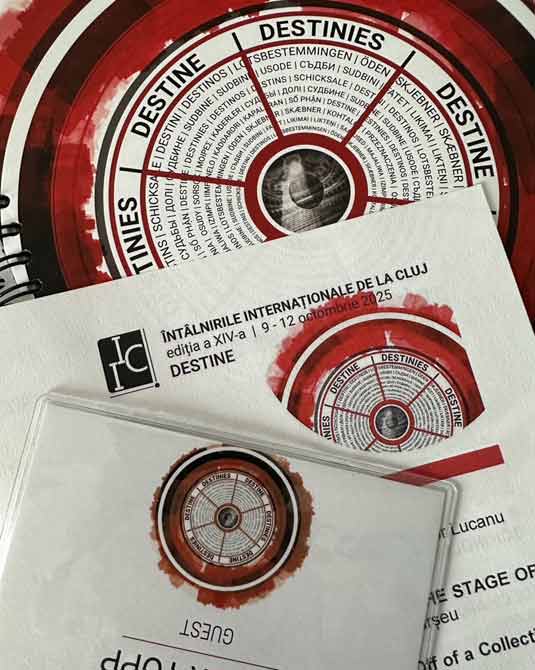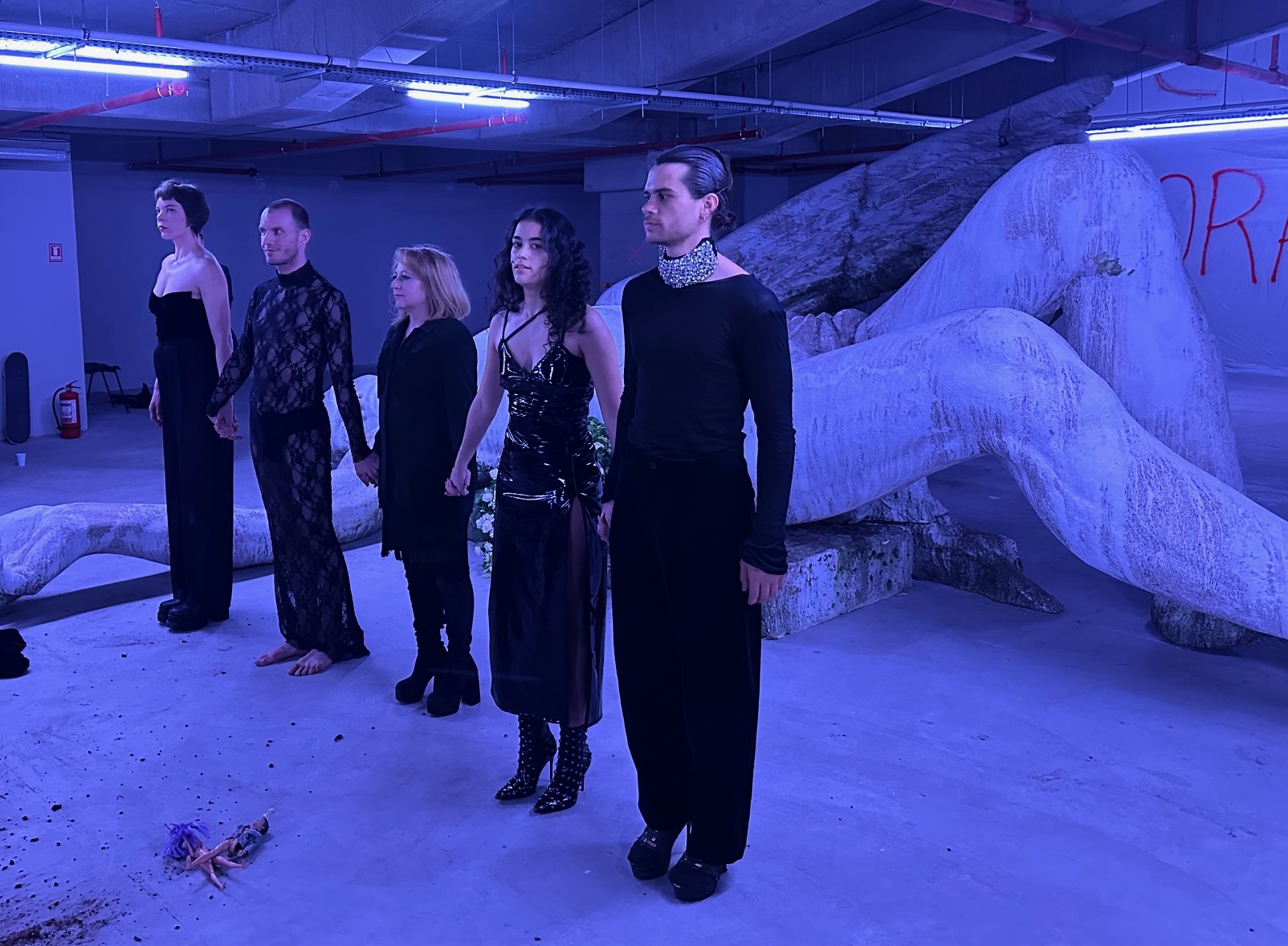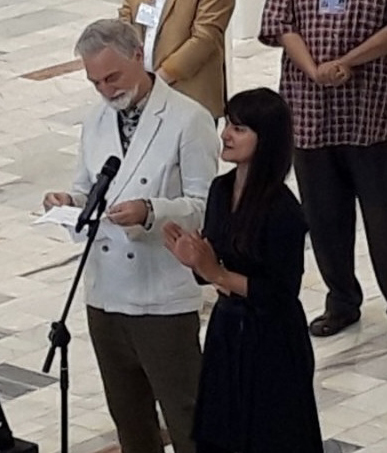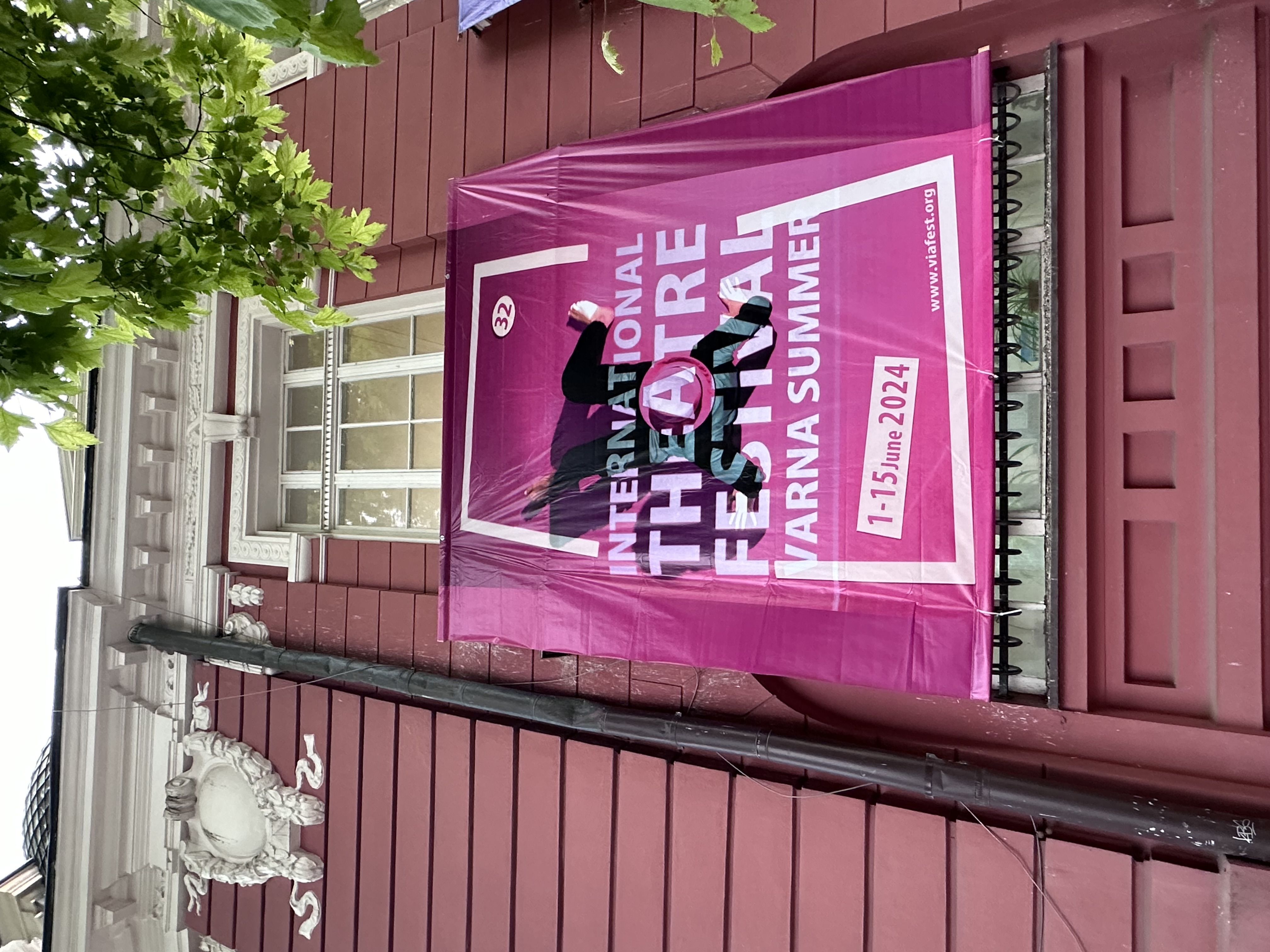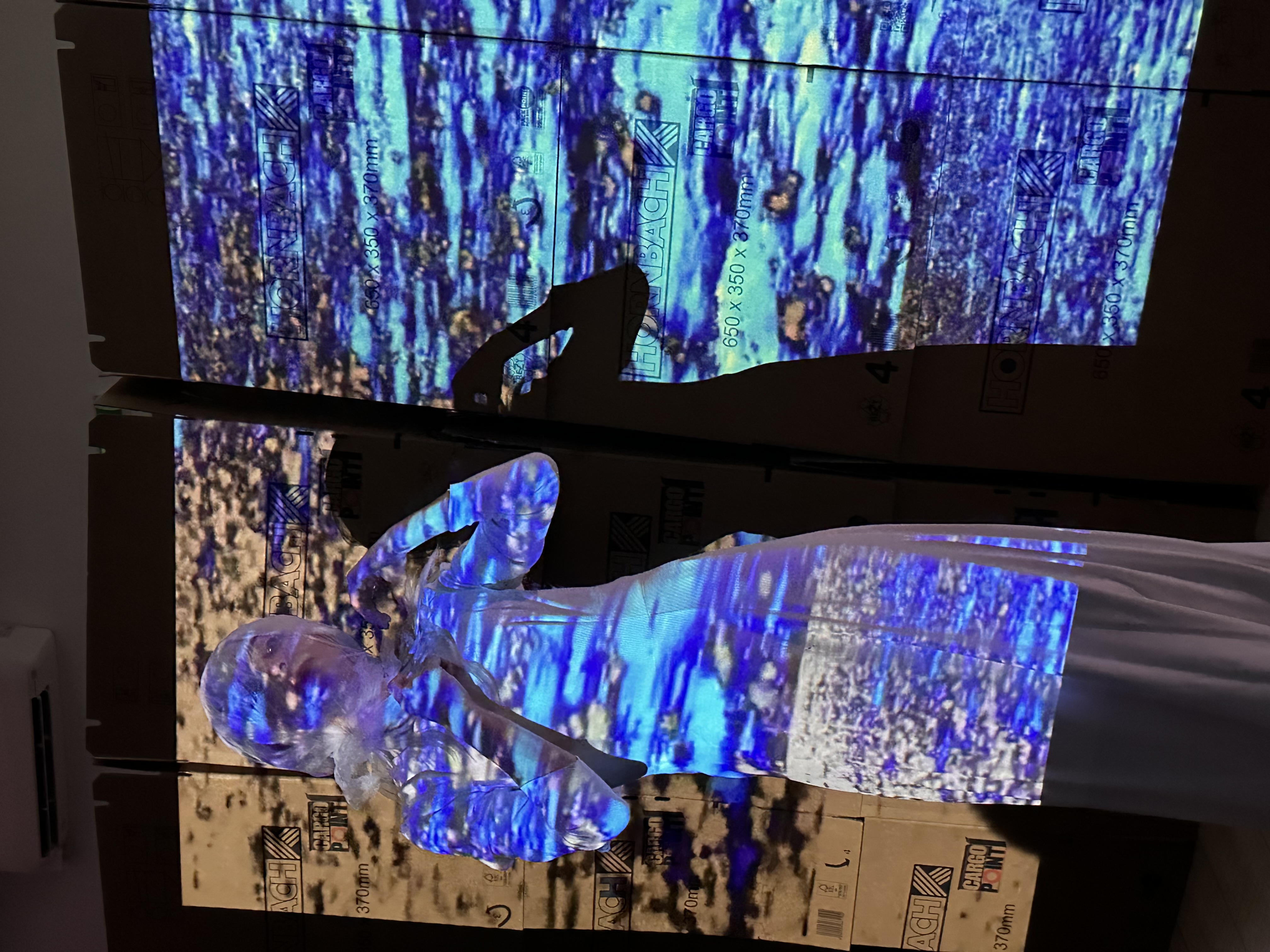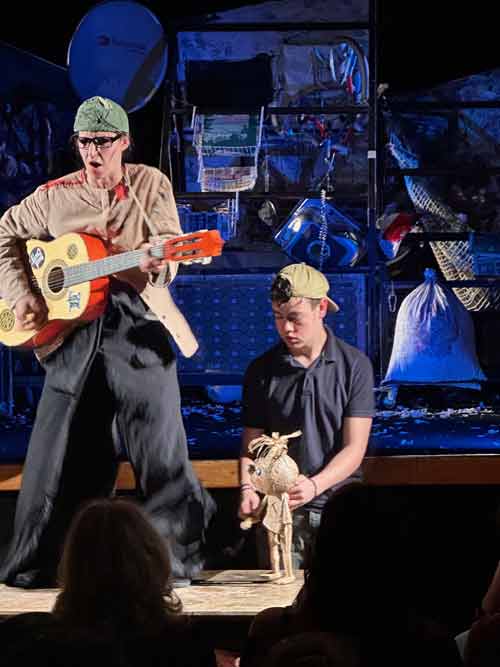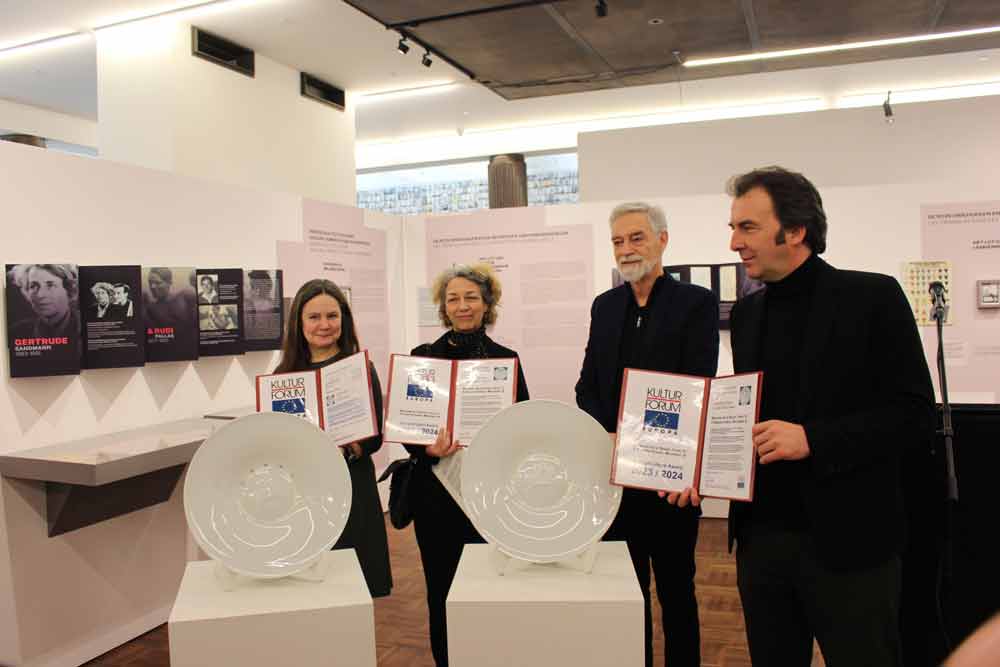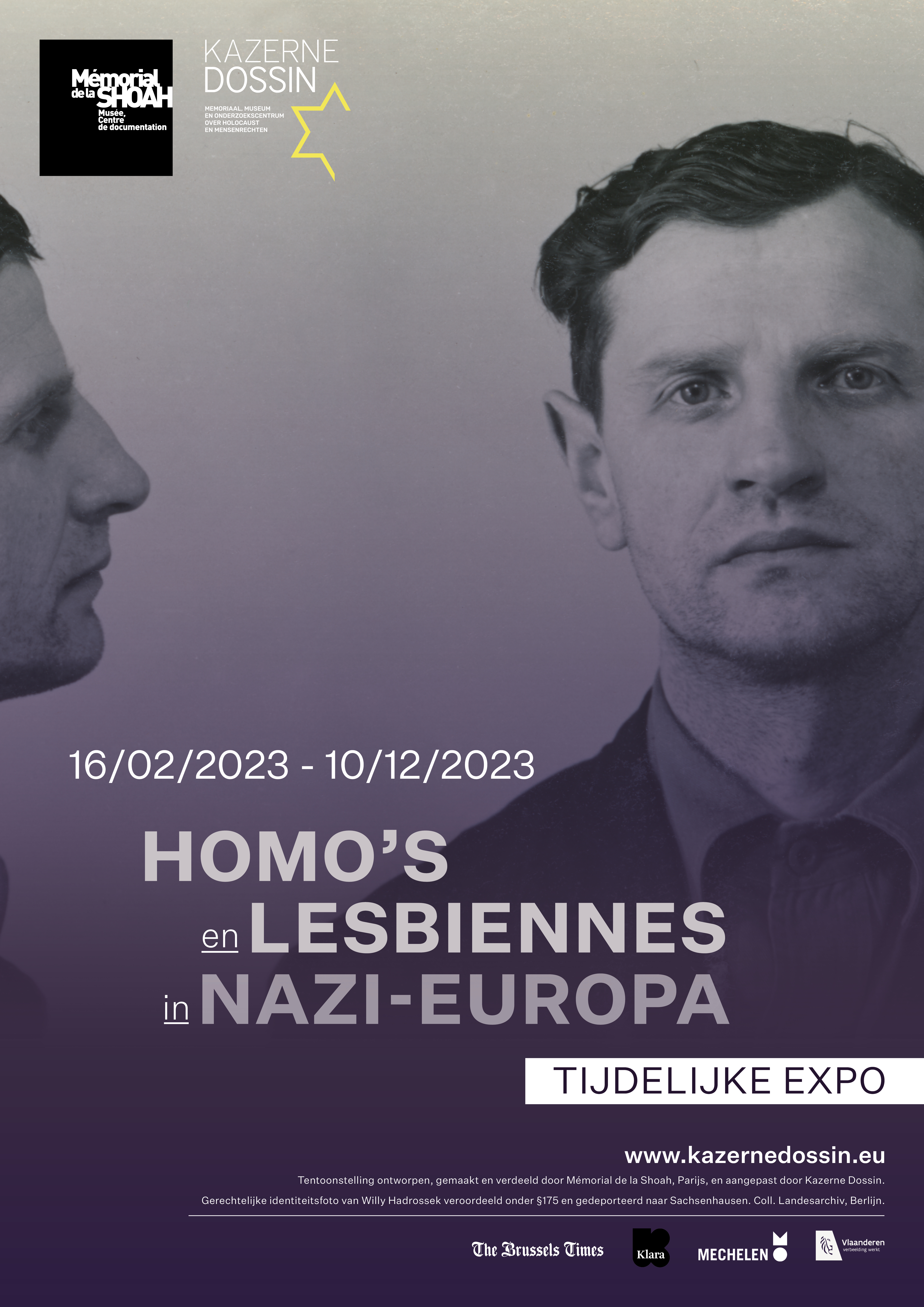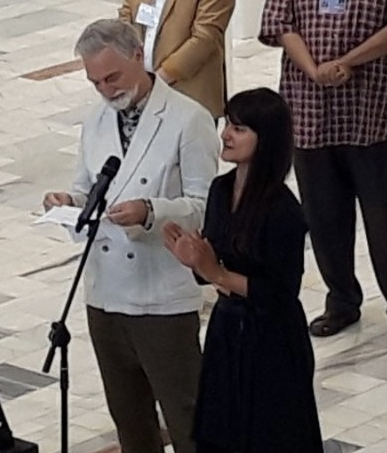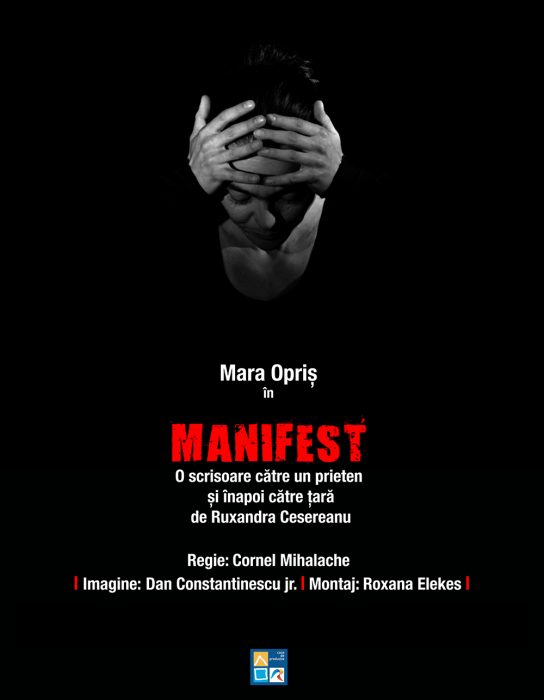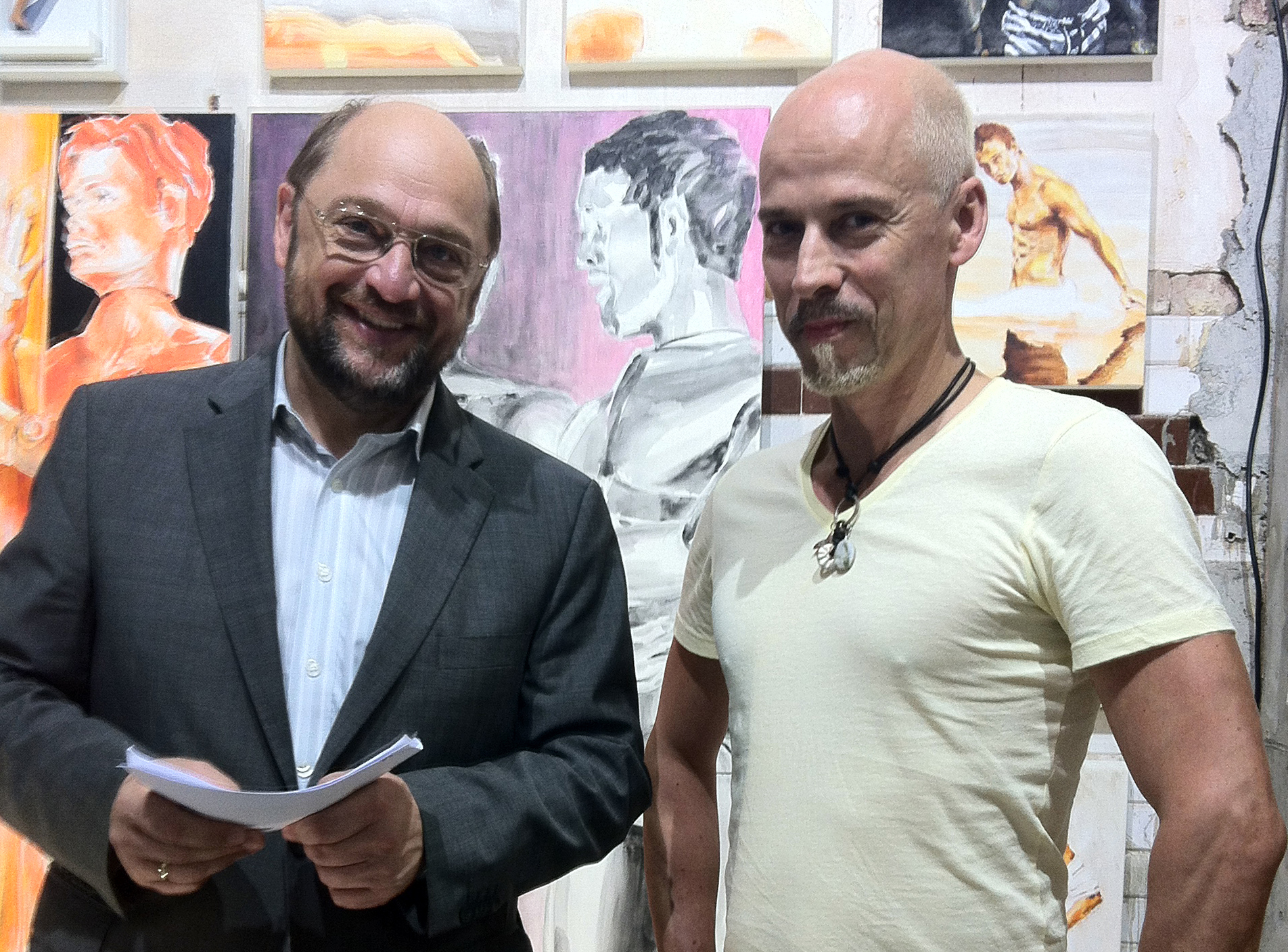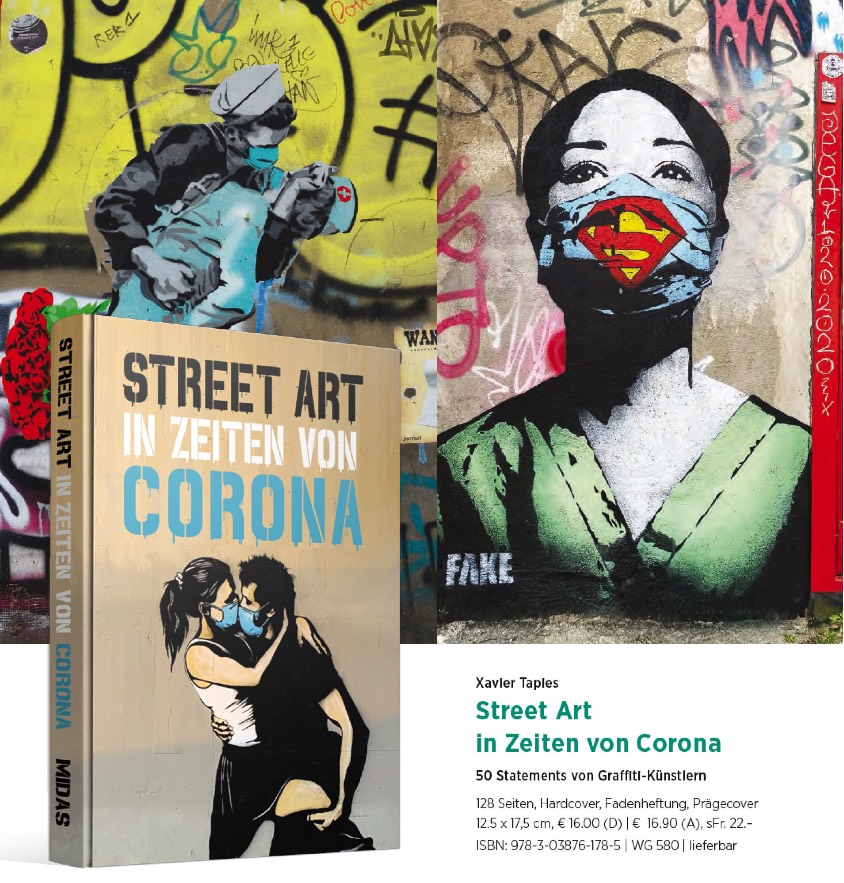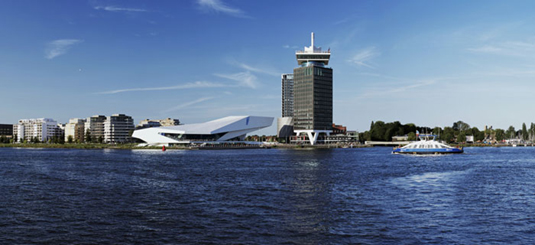 Evita Perón -
Evita Perón -
Evita Tango -
Movement Theatre Show -
Her rise to fame and power, her dramatic biography a stage epic par excellence. Eva Duarte was born in 1919 in poor circumstances and managed to escape the harsh realities of life and achieve far more than was conceivable for a woman of her economic status at the time.
On her way to becoming a millionaire and First Lady of Argentina and her early death in 1952, Evita Perón (today) became both a polarising historical figure and a style icon for the whole world. The musical Evita by Andrew Lloyd Webber, which in parts portrays a power-hungry, authoritarian president's wife who will walk over dead bodies for her career, contributed to this.
Many members of the upper classes called it hypocrisy that she stood up for the poor, while others admired her romantic Cinderella story on the one hand and her passionate political acumen on the other. She campaigned vehemently for workers' rights and women's suffrage, condemned the upper classes, and as she fell ill towards the end of her life, her rhetoric became increasingly strident.
Just this year, the musical is being revived on Broadway and in London's West End. Why not also in Romania, where this year, after several years, I was able to see MC Ranin's tango-based theatre, choreographed by the sadly deceased Hugo Wolff, with different eyes.
The actor Liviu Cheloiu dances to historical film footage in the Tony Bulandra Theatre in Târgovişte as the lover or rather sexually dependent Juan Perón through the ups and downs between public politics and private love in very different facets. He represents dependence on his lover rather than the pioneer of a dictatorship.
And then there's her, Evita! The actress Mara Opriș finds the depth and the means and seems predestined for this role in her person, her personality in expression and movement.
I discovered her in the impressive film screening (UNITER Award for Best TV Theatre Show 2020) ‘Letter to a Friend and Back to the Country - MANIFEST’, based on a poem by Ruxandra Cesereanu and directed by Cornel Mihalache.
' … The faces of despair are centred on the expressive face of actress Mara Opriș, who expresses the suffering and anguish of a nation that was so close to a great victory. The contortions of the actress's body, but above all the stillness of her pain-filled gaze, haunt the viewer long after the screening ...'
 Evita Tango
Evita Tango
The evening with tango quotes from various sources based on the life of the legendary wife of Argentinian President Juan Perón is more than just theatre, movement, music and light.
Director MC Ranin, in collaboration with choreographer Hugo Wolff, conjures up a docudrama on the stage of the Tony Bulandra Theatre.
Original recordings from the 1930s until her death set the tone as contemporary witnesses.
Through a skilful transposition to a parallel story of George Orwell's Animal Farm, MC Ranin lends this show a necessary universality in the sense of the ‘parable of a dictatorship’.
The pigs of Orwellian origin that appear between the individual images of the dance show visually force us to do so. Greedy, vicious, disgusting, they draw ever tighter circles around Perón.
And suddenly they all fill the stage, the eagles of a dictator, the pigs, the secret police, the dogs, ... and more and more the audience becomes a witness to how a system uses manipulation and disinformation to putsch itself into power. Now Evita Perón's life on stage forms the backdrop for a current, inhuman statement.
The talented actress Mara Opriș and her colleague Liviu Cheloiu interpret the rise and fall of Evita Perón and her lover in skilful tango poses. Their mutual dependence is intertwined right into the coffin, including a spectacular love act.
The story of Evita has stood the test of time in both criticism and praise. She is a martyr of the oppressed and the first feminist in a conservative country to win the right to vote for women and who, in this production, ultimately becomes a saint who ascends to heaven like a Mother of God.
MC Ranin has once again embedded the whole thing in a stage set that resembles his revered Kabuki, with minimal accessories and flowing, colourful lighting, and Hugo Wolff has outdone himself this time, elevating the performers to the level of skilful tango dance theatre.
An impressive homage to a historical figure, skilfully embedded in a generally valid context. Carry on!!!
Back

